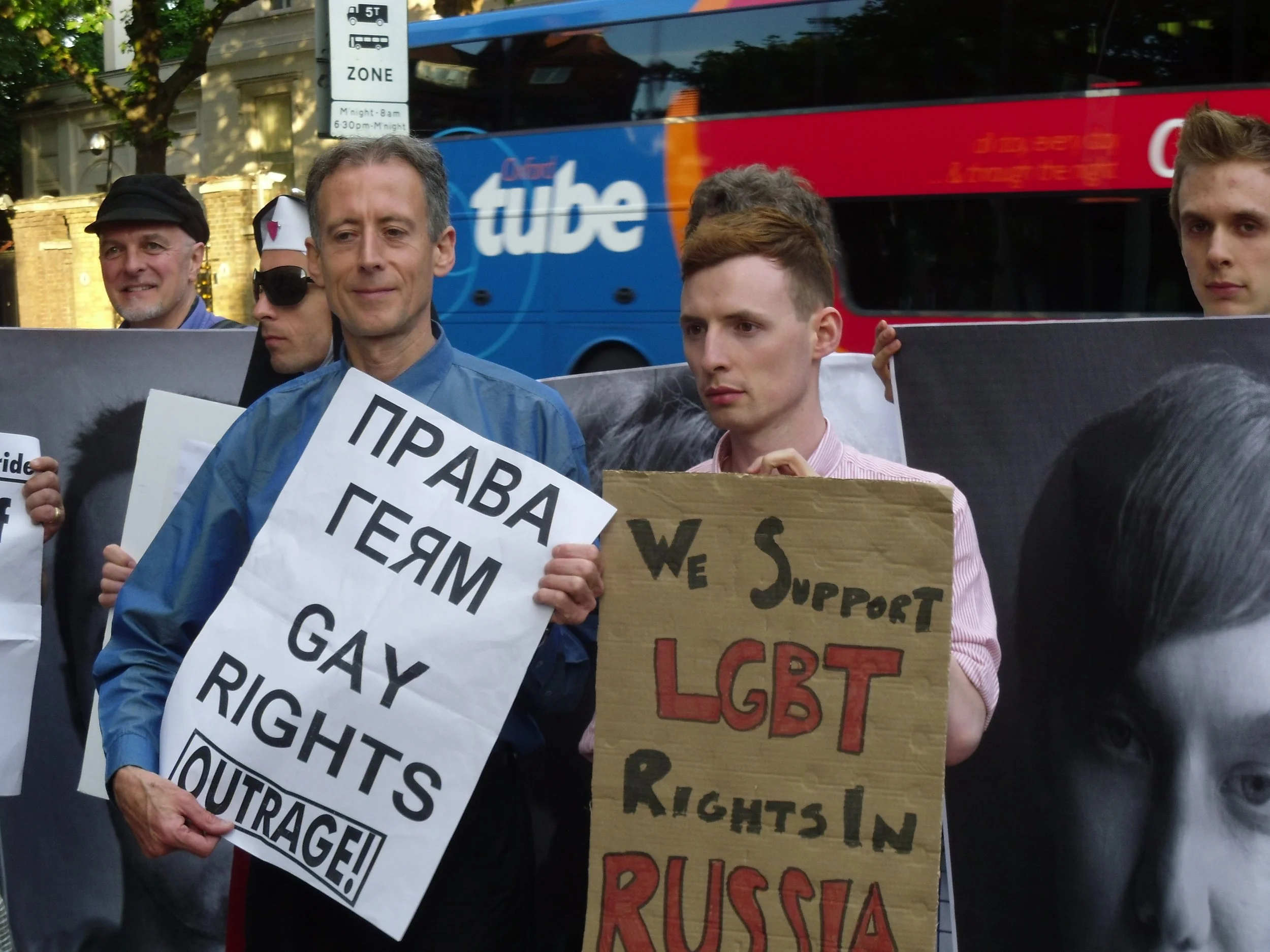Kazakhstan Advances Anti-LGBT Propaganda Law
Russia passed the world’s first anti-LGBT propaganda law in 2013 (Wikimedia Commons).
Kazakhstan’s lower house of parliament unanimously passed an anti-LGBT propaganda law on November 12, according to NBC News. The law is widely expected to pass in the Kazakh Senate and be signed into law by Kazakh President Kassym-Jomart Tokayev, who has recently emphasized the need to uphold so-called “traditional values,” echoing similar calls by Russian President Vladimir Putin. Kazakhstan’s anti-LGBT law is part of a broader trend in Eastern Europe and Central Asia, as Georgia, Hungary, and Russia have already passed similar anti-LGBT propaganda laws.
The text of the Kazakh law explicitly bans “information containing propaganda of pedophilia and/or non-traditional sexual orientation in public spaces, as well as in the media,” with violators receiving either a fine or up to 10 days imprisonment, according to CBS News. This language equates queer people with pedophiles and frames the law as defending so-called “traditional values,” a strategy pioneered in Russia’s landmark 2013 anti-LGBT propaganda law. At least seven international human rights organizations, including Human Rights Watch, have condemned the law and called for Kazakh lawmakers to reject it, claiming it violates Kazakhstan’s commitments under international law.
Russia passed the world’s first anti-LGBT propaganda law in 2013, which banned such propaganda targeting minors. It expanded the law in 2022 to include LGBT propaganda targeting adults; persecutions under the law have greatly increased following Russia’s full-scale invasion of Ukraine in 2022. Additionally, in 2024, Russia’s Supreme Court ruled that the “international LGBT movement” is an “extremist organization,” banning it from operating within the country, according to the Guardian. Such an organization does not exist, and the ruling is widely seen as an attempt to further crack down on LGBT rights in Russia. Under the anti-LGBT propaganda law and court ruling, Russians have been persecuted for things like wearing rainbow-colored frog-shaped earrings, for which a woman was placed in administrative detention for five days in 2024, and posting pictures of rainbow LGBT flags online. Russia has also banned gender-reassignment surgeries and removed the ability to change one’s gender marker in their passport.
Hungary became the first country in Eastern Europe and Central Asia to emulate Russia’s anti-LGBT propaganda law in 2021, when it banned “the depiction and promotion” of “diverse gender identities and sexual orientations” in “public education, media, advertisements, and some commercial activities,” according to Amnesty International. While a member of the European Union, Hungary has increasingly aligned itself with Russia under Prime Minister Viktor Orbán. Georgia, which has also increasingly aligned itself with Russia under the Georgian Dream party’s rule, followed suit in 2024 with its own anti-LGBT propaganda law, according to Civil Georgia. Human rights advocates worry that Georgia, Hungary, and now Kazakhstan will follow in Russia’s footsteps, with their respective anti-LGBT propaganda laws constituting the first step towards more draconian persecution of queer people.

